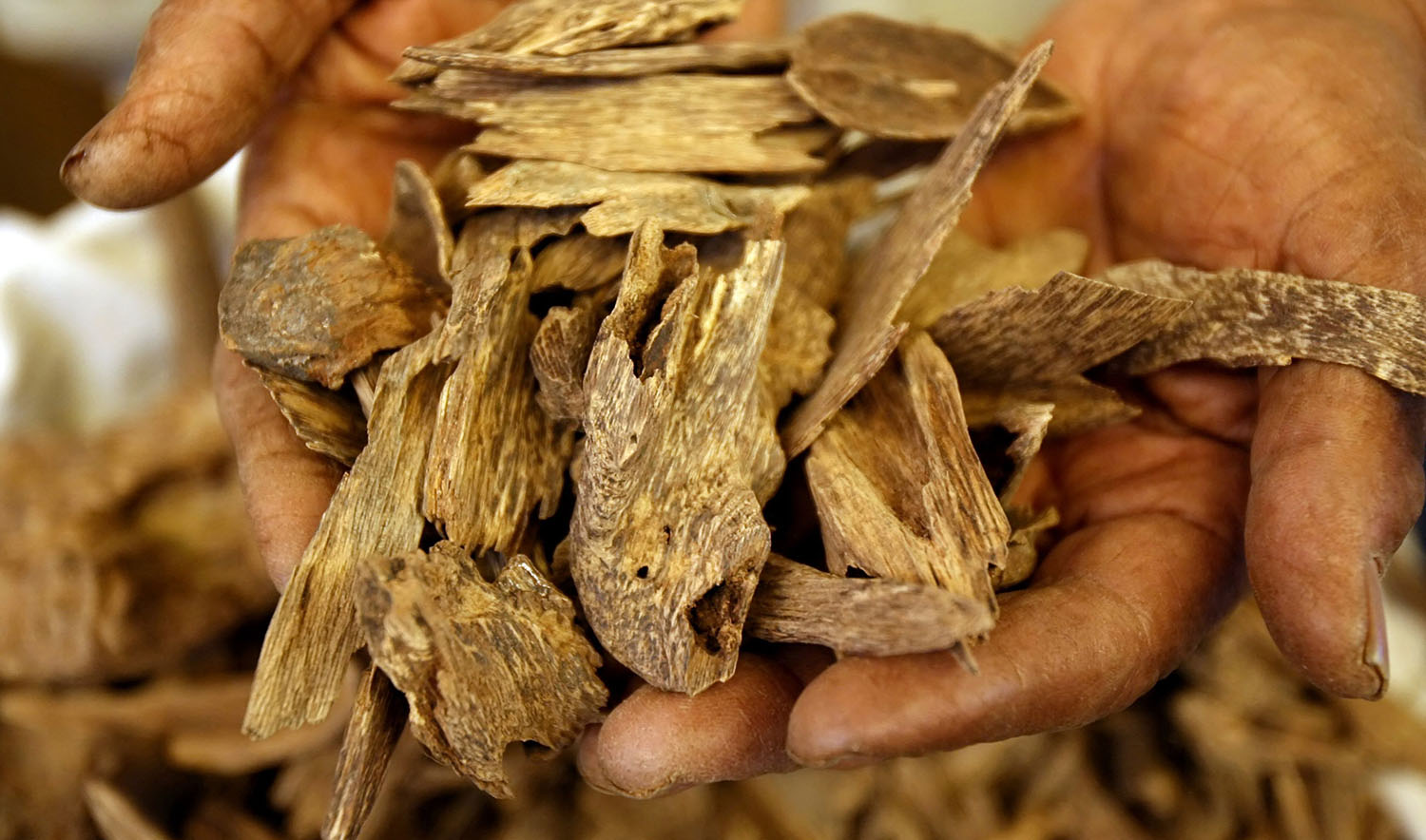KARACHI: Beauty and fragrance brands across Pakistan have been importing a product which has long dominated the Middle East culture and is widely used in traditional Arab households and markets.
'Bakhoor,' or agarwood chips, are used to spread lingering fragrance at homes, shops and offices. Pakistani businesses have been bringing these scented bricks from Arab countries before offering their different varieties to customers.
A salon in Karachi, for instance, provides hair bakhoor scalp treatment which, it says, is quite popular in the Arab World.
"Bakhoor is in high demand in Pakistan," Adeel Shafiq Alam, chief executive officer of an Arabian fragrance shop, Souk Galleria, told Arab News.
Alam's organization has been doing good business in Karachi and Lahore since 2020 and boasts international outlets in places like Dubai and the United States.
"We import bakhoor from Saudi Arabia and the United Arab Emirates," Alam added. "Bakhoor farming is not common in Pakistan. Even if we start it today, it will take another 25 years for us to benefit from it. A large number of people in Pakistan are still not very familiar with bakhoor."

A Saudi man holds a handful of Bakhoor or Agarwood at his shop in Riyadh, Saudi Arabia on October 10, 2007. (AFP/File)
Alam, whose business offers several types of bakhoor products, said people used to ask him all sorts of questions about the scented bricks when Souk Galleria started advertising bakhoor in Pakistan two years ago.
"Many of them want to buy bakhoor but are usually deterred by high prices," he continued. "Most of them find it difficult to afford good quality bakhoor, which can cost around Rs1,000 per gram."
The incense chips, which have been used in the Middle East for centuries, are said to have several medical and psychological benefits. Some say they change people's mood and relieve them of stress and anxiety.
"The future of bakhoor is bright in Pakistan since many people from this country visit Arab states, especially for Hajj and Umrah, and see how Arabs use these scented chips," Shiekh Faisal Ghani, chairman of Saeed Ghani, a popular Pakistani brand for herbal and skincare products, told Arab News.
Ghani's business offers bakhoor fragrances that include Oud Wood, Oud Combodi, Oud Kindi and Oud Amber.
"Ninety-nine percent of bakhoor is imported from Gulf countries, such as Saudi Arabia, the United Arab Emirates and Oman," he added.
Karachi's Scalpxury, a beauty salon, says it is the only place in the country offering bakhoor hair treatment.
"Hair bakhoor are different from normal bakhoor sold in Pakistan. The fragrance and texture are slightly different and they give longevity to one’s hair," said Shehla Khan, the salon owner.
"Conventionally and commercially, hair bakhoor are not available in the market. I get them from the Arab region."
Khan said her business was different since it was not retailing or selling bakhoor, but using them to offer a popular variety of hair treatment.












